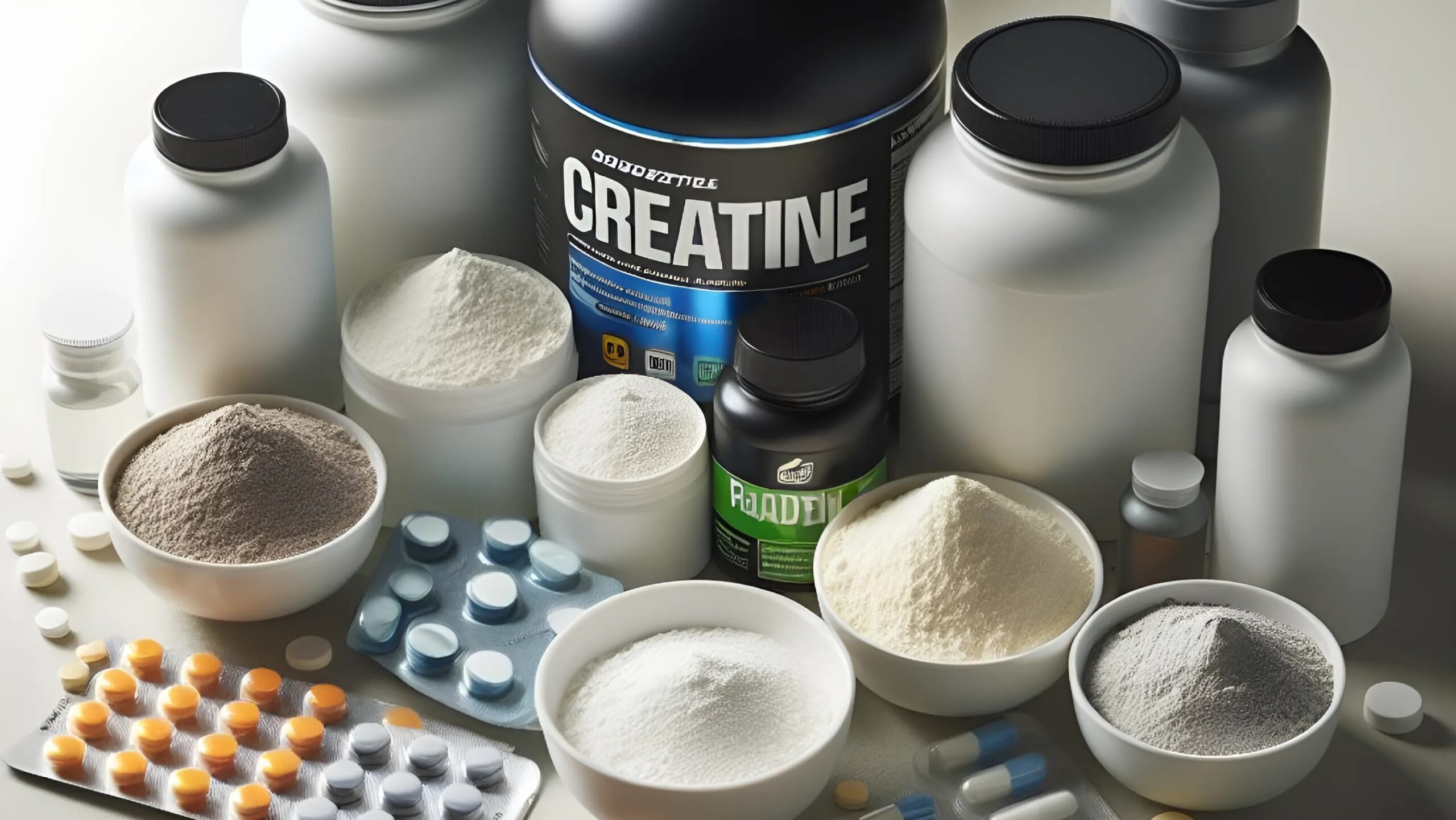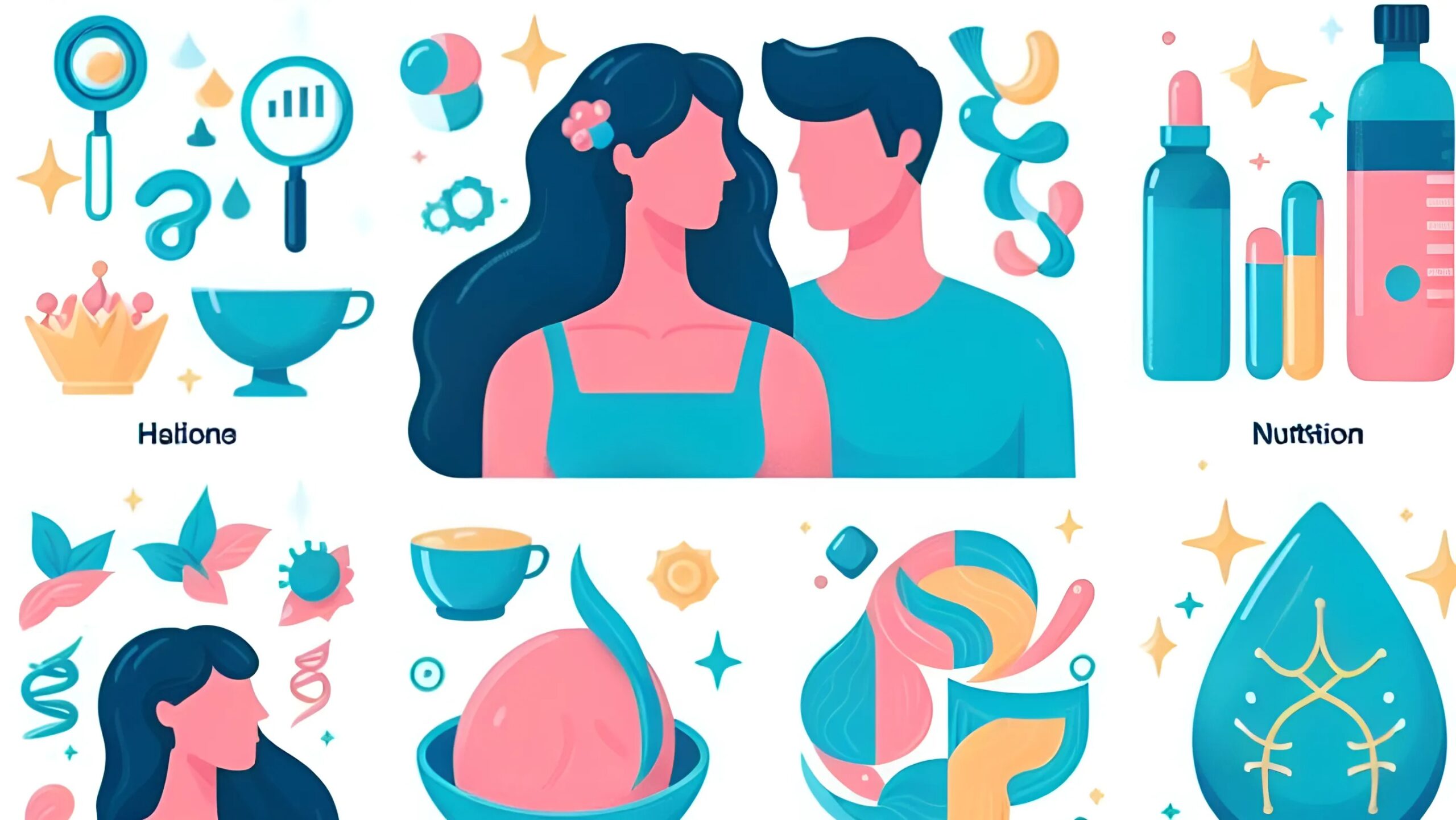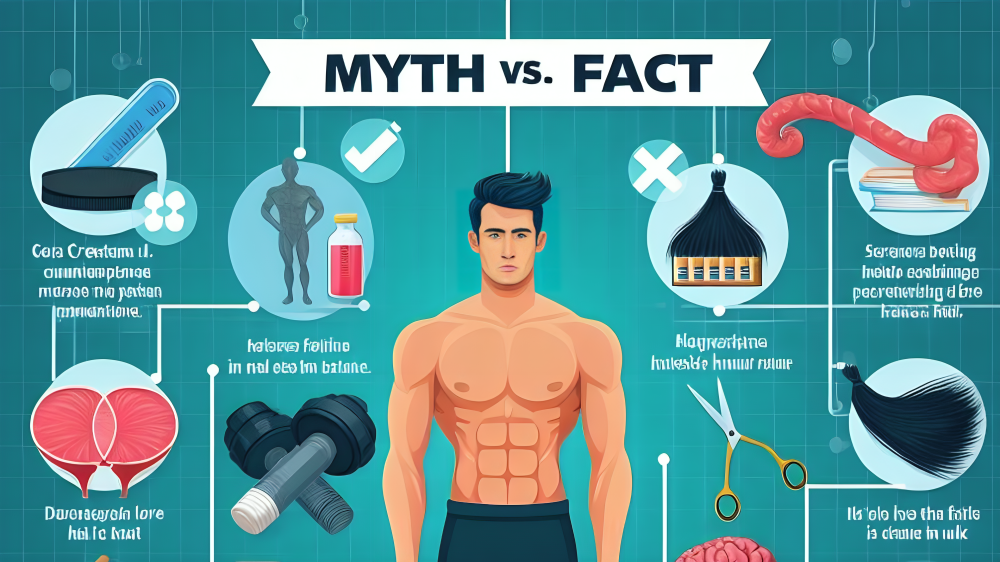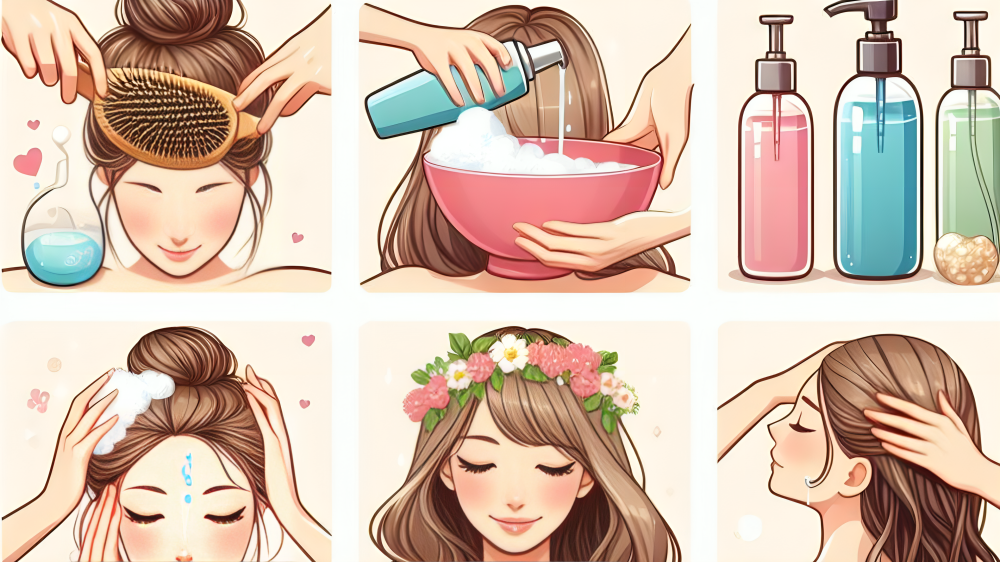
Introduction:
In recent years, creatine supplements have gained immense popularity among fitness enthusiasts, athletes, and bodybuilders. These powdered or pill-based supplements promise enhanced muscle strength, improved exercise performance, and faster recovery. However, alongside this surge in creatine usage, there has been a growing concern: could creatine supplementation be linked to hair loss?
In this article, we delve into the science behind creatine, explore the intricate biology of hair growth, and examine personal testimonies. Our goal is to shed light on whether creatine truly poses a risk to our precious locks or if it’s merely a myth perpetuated by the fitness community.
Let’s embark on this journey, backed by scientific evidence and expert opinions, to understand whether creatine and hair loss are intertwined.
Understanding Creatine:
Creatine, a naturally occurring compound in our bodies, plays a pivotal role in energy production, particularly during high-intensity activities. Let’s break down the key aspects of creatine, from its definition to its impact on athletic performance.
- What is Creatine?
- Definition: Creatine is a nitrogenous organic acid synthesized primarily in the liver, kidneys, and pancreas. It’s also found in small amounts in certain foods like red meat and fish.
- Natural Occurrence: Our bodies produce approximately 1–2 grams of creatine daily. However, this amount may not suffice for intense physical demands, leading many athletes to turn to supplementation.
- Sources of Creatine: Dietary and Supplemental
- Dietary Sources: As mentioned earlier, red meat (especially beef) and fish are natural sources of creatine. Consuming these foods contributes to our overall creatine levels.
- Supplemental Creatine: Athletes often opt for creatine monohydrate supplements. These powders or capsules provide a concentrated dose, allowing muscles to store more creatine phosphate—a crucial energy reservoir.
- How Does Creatine Work?
- Muscle Cells: Creatine’s magic lies within muscle cells. When you engage in short bursts of intense exercise (think weightlifting or sprinting), your muscles rely on adenosine triphosphate (ATP) for energy.
- ATP Regeneration: Creatine helps regenerate ATP by donating its phosphate group to adenosine diphosphate (ADP), converting it back into ATP. This rapid energy replenishment allows you to push harder during workouts.
- Benefits of Creatine for Athletic Performance and Muscle Growth
- Enhanced Strength: Creatine supplementation has been linked to increased strength and power output. Athletes can lift heavier weights or sprint faster due to improved ATP availability.
- Muscle Hypertrophy: Creatine promotes water retention within muscle cells, leading to a fuller appearance and potential muscle growth.
- Recovery: Faster ATP regeneration means quicker recovery between sets, reducing fatigue during high-intensity training sessions.
Now, let’s address the elephant in the room: hair loss. Despite rumors, scientific studies have not conclusively linked creatine supplementation to hair loss. So, lift those weights, sprint those sprints, and rest assured—your hair follicles are safe.

The Biology of Hair Growth:
Our hair, like a delicate ecosystem, undergoes a fascinating cycle that shapes its growth, thickness, and overall health. Let’s dive into the intricate world of hair biology, exploring the phases, factors, and common culprits behind hair loss.
- Hair Growth Cycle: Anagen, Catagen, and Telogen Phases
- Anagen (Growth Phase): During this phase, hair actively grows from the follicle. It’s a time of vitality and expansion, lasting anywhere from 2 to 7 years.
- Catagen (Transition Phase): A brief interlude where hair growth slows down. The follicle shrinks, and the hair detaches from its blood supply. This phase lasts about 2–3 weeks.
- Telogen (Resting Phase): Hair takes a break, hanging out in the follicle without growing. After 2–4 months, it sheds, making way for new growth.
- Factors Influencing Hair Growth
- Genetics: Our DNA holds the blueprint for hair thickness, texture, and susceptibility to hair loss. If your family tree has a few bald branches, you might inherit those genes.
- Hormonal Changes: Hormones play a significant role. Androgens (like testosterone) can shrink hair follicles, leading to thinning. Pregnancy, menopause, and conditions like polycystic ovary syndrome (PCOS) impact hormonal balance.
- Nutrition and Lifestyle: A diet lacking essential nutrients (hello, iron and biotin!) can affect hair health. Stress, smoking, and excessive alcohol consumption also take their toll.
- Common Causes of Hair Loss
- Genetic Predisposition: Androgenetic alopecia (male or female pattern baldness) is often hereditary. Blame those pesky androgens again—they miniaturize hair follicles over time.
- Hormonal Shifts: Thyroid imbalances, pregnancy-related hormonal shifts, and even stress-induced hormonal changes can lead to hair shedding.
- Nutritional Deficiencies and Lifestyle Factors: Low iron, inadequate protein intake, crash diets, and extreme stress weaken hair. So, eat your leafy greens and find your zen.
Now, let’s address the lingering question: does creatine cause hair loss? While some anecdotal claims exist, scientific evidence remains inconclusive. So, keep lifting those weights, sipping that creatine shake, and remember that your hair follicles are resilient little warriors.
Exploring the Link: Creatine and Hair Loss
The Origin of the Concern
The whispers began in gym locker rooms, echoing through online forums and fitness blogs. Could creatine, the beloved workout companion, be secretly plotting against our luscious locks? Let’s rewind to when the rumor sprouted its first hair-thinning tendrils.
Early on, anecdotal reports surfaced—testimonies from gym bros who claimed that their once-voluminous manes had thinned after a creatine-fueled lifting session. But anecdotes alone don’t hold up in the court of science. We needed more than locker room lore to unravel this mystery.
Scientific Studies and Findings
Enter the researchers, armed with lab coats and skepticism. They peered into the creatine-hair loss rabbit hole, hoping to find either a smoking gun or a well-groomed alibi. The verdict? A mixed bag, my friend.
While several studies examined the creatine-hair loss connection, they didn’t all sing the same tune. Some studies shrugged, saying, “Nah, creatine ain’t the culprit.” Others raised an eyebrow, hinting, “Maybe, just maybe.”
The pivotal study of 2009—a rugby player saga—caught our attention. These burly athletes embarked on a creatine supplementation regimen. Seven days of creatine loading (think chugging creatine like it’s protein shake happy hour) followed by a maintenance period. The result? Dihydrotestosterone (DHT), the hormone with a penchant for hairline sabotage, did a little victory dance. Levels shot up over 50 percent during loading and stayed 40 percent above baseline during maintenance. But wait, no hair loss assessment? Just hormone levels? Yep, that’s science for you—sometimes it’s all about the hormones, and no hairline selfies are allowed.
DHT and Hair Loss
Now, let’s talk about DHT. It’s like the James Bond villain of hair follicles—slick, potent, and not here for hair growth parties. DHT, derived from testosterone, sidles up to specific receptors in follicles. Once there, it whispers, “Hey, follicle, let’s shrink your growth cycle, make your hairs thinner, and play a cruel game of musical chairs with ’em.” Result? More hairs falling out than a clumsy cat in a yarn shop.
But here’s the twist: genetics. Some folks inherit a gene called AR (not the pirate kind, sadly). This gene cranks up the volume on those hormone receptors, like a DJ at a hair loss disco. Plus, the enzyme that converts testosterone to DHT? It moonlights as a hairline saboteur, especially in the genetically predisposed.
Creatine’s Role
So, does creatine play the villain or the innocent bystander? The jury’s still sipping protein shakes. While DHT levels did the cha-cha during that rugby study, hair loss remained backstage, sipping herbal tea. No grand entrance. No curtain call.
Creatine might be the cool kid at the gym, but is it linked to hair loss? A bit like spotting Bigfoot doing squats—elusive and inconclusive. So, lift those weights, flex those biceps, and let your hair sway in the breeze. Creatine’s got your back (and your follicles, too).

Expert Opinions and Testimonials
Dermatologists’ Perspectives: Leading dermatologists have extensively studied the relationship between creatine and hair loss. While there isn’t conclusive scientific evidence directly linking creatine supplementation to hair loss, some observations warrant attention. Anecdotal reports suggest that hair thinning may occur after prolonged creatine use, but more research is needed to establish a definitive link.
Sports Nutritionists and Fitness Experts: Opinions among sports nutritionists and fitness experts vary. Some believe that creatine’s impact on hair loss is indirect. Creatine supplements can elevate dihydrotestosterone (DHT) levels, a hormone associated with hair loss. DHT binds to specific receptors in hair follicles, potentially leading to shorter hair growth cycles and thinner strands. However, individual responses may differ, and genetic predisposition plays a role.
Personal Stories: Testimonies from individuals who have experienced hair loss while using creatine highlight the need for personalized assessment. While some report adverse effects, others remain unaffected. Factors like genetics, overall health, and lifestyle contribute to the variability in responses. It’s essential to consult a healthcare professional if you notice changes in your hair while taking creatine.
Stories of Users Without Adverse Effects: Conversely, some users haven’t experienced hair loss despite creatine supplementation. Their stories emphasize that individual outcomes can differ significantly. Factors such as dosage, duration, and overall health play a crucial role in determining whether creatine affects hair health.

Addressing Common Misconceptions
Creatine and Hair Loss: Separating Fact from Fiction
Creatine is a widely used nutritional and sports supplement, known for its performance-enhancing properties. However, there has been speculation about whether creatine supplementation can lead to hair loss. Let’s explore the evidence and clarify the connection between creatine and hair health.
-
The Research on Creatine and Hair Loss:
-
-
- No Direct Link: Scientific research does not conclusively establish a direct relationship between creatine supplementation and hair loss. Most of the evidence suggesting this link is anecdotal, based on personal experiences rather than rigorous studies.
- DHT and Hair Follicles: DHT binds to specific receptors in hair follicles, potentially shortening hair growth cycles and leading to thinner, shorter hairs. Individuals with a genetic predisposition to hair loss may be more susceptible to these effects.
- Genetic Factors: Variations in the AR gene and the activity of the enzyme that converts testosterone to DHT play crucial roles in hair loss. Creatine supplementation could exacerbate hair loss risk in genetically susceptible individuals.
-
-
Understanding Creatine:
-
-
- Energy Source: Creatine serves as an energy source for cells and is naturally produced by the liver, pancreas, and kidneys.
- DHT and Hair Health: While creatine itself doesn’t directly cause hair loss, its impact on DHT levels warrants attention. If you’re genetically predisposed to hair loss, increased DHT due to creatine supplementation may pose a risk.
-
-
When to Seek Professional Advice:
-
- Consult a Doctor: If you’re concerned about hair loss, consult a healthcare professional. They can assess your individual situation, consider genetic factors, and provide personalized advice.
- Balancing Benefits and Risks: Remember that creatine offers benefits for athletic performance and muscle growth. Weigh these benefits against any potential risks related to hair health.
1. Other Performance-Enhancing Supplements:
- Beta-Alanine: Beta-alanine is an amino acid that helps buffer lactic acid buildup during intense exercise. It can enhance endurance and delay muscle fatigue.
- BCAAs (Branched-Chain Amino Acids): BCAAs (leucine, isoleucine, and valine) support muscle protein synthesis and reduce muscle soreness. They’re commonly used by athletes and fitness enthusiasts.
- Citrulline Malate: Citrulline malate improves blood flow, leading to better nutrient delivery to muscles. It may enhance exercise performance and reduce fatigue.
- Caffeine: A cup of coffee or a caffeine supplement can boost alertness, focus, and endurance during workouts.
2. Natural Ways to Boost Muscle Growth:
- Protein Intake: Prioritize protein-rich foods like lean meats, fish, eggs, dairy, and plant-based sources (tofu, legumes, quinoa). Protein supports muscle repair and growth.
- Strength Training: Regular resistance training stimulates muscle development. Compound exercises (squats, deadlifts, bench presses) are effective.
- Adequate Rest: Muscles grow during rest and recovery. Ensure sufficient sleep and avoid overtraining.
- Hydration: Proper hydration is essential for muscle function and overall health.
- Balanced Diet: Consume a variety of nutrients, including vitamins (like vitamin D), minerals (such as zinc), and healthy fats (omega-3s).
Remember that individual responses to supplements and lifestyle changes vary. Always consult a healthcare professional or a registered dietitian before making significant adjustments to your routine. Prioritize overall health, and find what works best for your body.

Maintaining Healthy Hair
- Diet and Nutrition for Hair Health:
- Vitamins and Minerals: A balanced diet rich in vitamins and minerals is crucial for strong, vibrant hair. Include foods high in:
- Biotin (Vitamin B7): Found in eggs, nuts, and whole grains, biotin supports hair growth and prevents hair fall.
- Vitamin E: Nourishes hair follicles and promotes blood circulation. Sources include almonds, spinach, and sunflower seeds.
- Zinc: Supports hair structure and prevents hair loss. Consume zinc-rich foods like pumpkin seeds and lentils.
- Iron: Iron deficiency can lead to hair thinning. Boost iron intake with red meat, beans, and leafy greens.
- Protein: Hair is primarily composed of protein (keratin). Include lean meats, fish, eggs, and legumes to maintain healthy hair.
- Effective Hair Care Practices:
- Gentle Washing: Avoid harsh shampoos and excessive washing. Use sulfate-free products and massage your scalp gently.
- Conditioning: Regularly condition your hair to prevent dryness and breakage.
- Avoid Heat Styling: Limit the use of hair dryers, straighteners, and curling irons. Heat damages hair.
- Scalp Massage: Stimulate blood flow by massaging your scalp. It nourishes hair follicles.
- Trim Regularly: Regular trims prevent split ends and promote healthy hair growth.
- Treatment Options for Hair Loss:
- Over-the-Counter (OTC) Solutions:
- Minoxidil: A topical solution that promotes hair growth. Apply it directly to the scalp.
- Finasteride: An oral medication that inhibits DHT (dihydrotestosterone) production, reducing hair loss.
- Prescription Medications:
- Consult a doctor for stronger medications like finasteride or dutasteride.
- Hair Transplantation:
- FUE (Follicular Unit Extraction) or FUT (Follicular Unit Transplant) procedures involve transplanting healthy hair follicles to thinning areas.
- Laser Therapy:
- Low-level laser therapy (LLLT) stimulates hair follicles and may improve hair density.
- Natural Remedies:
- Aloe Vera: Apply aloe vera gel to the scalp to soothe inflammation and promote hair health.
- Coconut Oil: Massage warm coconut oil into your scalp to moisturize and strengthen hair.
- Onion Juice: Rich in sulfur, onion juice may boost hair growth when applied topically.
- Green Tea: Rinse your hair with cooled green tea to reduce hair fall.
Remember that individual responses to treatments vary. Consult a healthcare professional to determine the best approach for your specific needs. Prioritize overall health, stress management, and a positive mindset for beautiful, resilient hair.
Frequently Asked Questions
-
Does Losing Hair Every Day Mean I’m Going Bald?
-
-
- It’s normal to shed some hair daily. On average, people lose between 50 and 100 hairs a day. However, if you notice significant hair loss, widening parts, or bald patches, it’s essential to consult a doctor to determine the cause.
-
-
What Causes Hair Loss?
-
-
- Androgenic Alopecia (Hereditary Hair Loss): Also known as male pattern baldness or female pattern baldness, this genetic condition affects up to 50% of people. It leads to gradual hair thinning, receding hairlines, and bald spots.
- Stress, Diet, and Lifestyle: Stress, poor nutrition, crash diets, and extreme weight loss can contribute to hair loss.
- Medical Conditions: Conditions like thyroid disorders, autoimmune diseases, and hormonal imbalances may cause hair loss.
- Medications and Supplements: Some medications (e.g., chemotherapy, antidepressants) and supplements can lead to hair shedding.
- Physical or Emotional Stress: Trauma, surgery, or emotional stress can trigger temporary hair loss (telogen effluvium).
- Alopecia Areata: An autoimmune disorder causing patchy hair loss.
- Traction Alopecia: Hair loss due to tight hairstyles or pulling.
- Scalp Infections: Fungal or bacterial infections can affect hair health.
-
-
Can Home Remedies Cure Baldness?
-
-
- While home remedies like onion juice, aloe vera, and coconut oil are popular, their efficacy varies. Consult a professional for personalized advice.
-
Do Non-Surgical Hair Restorations Work?
- Non-surgical options include topical minoxidil (Rogaine) and laser therapy. Results vary, and consistency is crucial.
-
-
Will Everyone Be Able to Tell I’ve Had Hair Restoration Surgery?
-
-
- Modern hair transplant techniques (FUE or FUT) create natural-looking results. Skilled surgeons ensure minimal scarring and natural hair growth patterns.
-
-
How Much Does Hair Restoration Surgery Cost?
-
-
- Costs vary based on the extent of restoration, location, and clinic. Consult with a specialist for personalized estimates.
-
-
How Do I Find a Reliable Hair Loss Doctor?
-
- Seek board-certified dermatologists or hair restoration specialists. Research their credentials, patient reviews, and experience.
Remember that individual experiences differ, and seeking professional advice is crucial for accurate diagnosis and effective treatment. Prioritize overall health, stress management, and self-care for healthier hair.
Conclusion:
In the world of fitness and muscle-building, creatine has become a trusted ally. But what about the persistent rumor that creatine might be secretly plotting against our hair? Let’s untangle the science, separate fact from fiction, and address the lingering question: does creatine cause hair loss?
- The Evidence: While anecdotal claims exist, scientific studies haven’t conclusively linked creatine supplementation to hair loss. A 2009 study observed increased dihydrotestosterone (DHT) levels—a hormone associated with hair loss—in rugby players during creatine loading. However, hair loss itself wasn’t directly assessed.
- DHT and Hair Follicles: DHT, that slick James Bond villain of hair follicles, binds to receptors and shortens hair growth cycles. Genetics play a role—some inherit genes that crank up those hormone receptors, making them more susceptible to hair loss.
- Creatine’s Role: Creatine remains elusive and inconclusive as a hair loss culprit. Like spotting Bigfoot doing squats, it’s hard to pin down. So, keep lifting weights, and let your hair sway—it’s got your back.
- Expert Opinions: Dermatologists, sports nutritionists, and personal stories offer varying perspectives. Some report hair thinning after prolonged creatine use, while others remain unaffected. Individual responses differ, so consult a healthcare professional if you notice changes in your hair1.
- Balancing Benefits and Risks: Creatine offers performance-enhancing benefits but weighs them against potential hair health risks. Prioritize overall well-being.
Maintaining Healthy Hair:
- Diet and Nutrition: Biotin, vitamin E, zinc, iron, and protein—all essential for strong, vibrant hair.
- Effective Hair Care Practices: Gentle washing, conditioning, avoiding heat styling, scalp massages, and regular trims.
- Treatment Options: From minoxidil to hair transplantation, explore options based on individual needs.
- Natural Remedies: Aloe vera, coconut oil, onion juice, and green tea—all potential allies in the battle for resilient hair.
Remember, shedding some hair daily is normal, but if you notice significant loss or widening parts, consult a doctor. Whether it’s androgenic alopecia or stress-induced shedding, prioritize overall health and maintain that positive mindset for beautiful, resilient hair.
